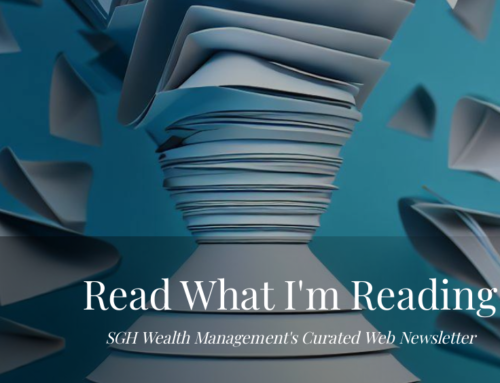Why aren’t there more Finance Professors turned Great Investors?
SGH Wealth Management’s “Read What I’m Reading” May. 2022 | May. 6th, 2022
There is nothing pleasant about a bear market (defined as a (-20%) downturn or more over 2 months); not the anxieties, not the paper losses, not the relentless reports in the media of America’s demise. The gut instinct is to stem the losses by selling before the market goes down further but locking in losses after the fact has almost always been the wrong move historically. In other words, selling feels good and staying disciplined is painful.
The gap between academic finance and practical finance is not because of college professors being unintelligent. Intelligence has no connection to the willingness to feel pain and successful investing requires pain. What is often lost in the market punditry and gloomy daily reports is how common bear markets have been in market history. Since 1929, there have been 28 bear market downturns or roughly one every 3.3 years.
Bear markets create investment opportunities, but one must admit that they aren’t fun, and in many cases contradict what your instincts might be telling you to do. Some may get solace out of sharing some of this pain with the US government. This can be done though ‘harvesting’ tax-deductible losses in a portfolio, which can be used to offset income or portfolio gains. Normally, the position with a loss is sold, the loss can be used to reduce what you pay in taxes, you buy a similar (but not identical) asset so you’re not missing any market recovery, and after 61 days have passed you repurchase the original asset.
These are activities that can make you money in the inevitable market recovery but doesn’t help avoid the pain. Remember that our instincts were honed over hundreds of thousands of years, to optimize our brains to recognize the right time to stalk a herd of antelope. It may take a few hundred more before our brains are optimized to be better investors.
Check out founder Sam Huszczo speaking on this and more at the largest ETF conference in the world later this month:


Keep In Touch